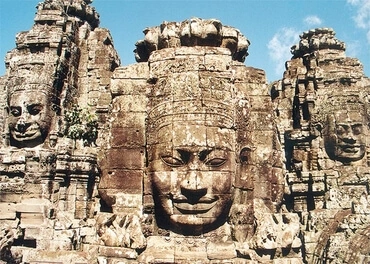1
And Jehovah spake unto Moses in the wilderness of Sinai, in the first month of the second year after they were come out of the land of Egypt, saying,
2
Moreover let the children of Israel keep the passover in its appointed season.
3
In the fourteenth day of this month, at even, ye shall keep it in its appointed season: according to all the statutes of it, and according to all the ordinances thereof, shall ye keep it.
4
And Moses spake unto the children of Israel, that they should keep the passover.
5
And they kept the passover in the first [month], on the fourteenth day of the month, at even, in the wilderness of Sinai: according to all that Jehovah commanded Moses, so did the children of Israel.
6
And there were certain men, who were unclean by reason of the dead body of a man, so that they could not keep the passover on that day: and they came before Moses and before Aaron on that day:
7
and those men said unto him, We are unclean by reason of the dead body of a man: wherefore are we kept back, that we may not offer the oblation of Jehovah in its appointed season among the children of Israel?
8
And Moses said unto them, Stay ye, that I may hear what Jehovah will command concerning you.
9
And Jehovah spake unto Moses, saying,
10
Speak unto the children of Israel, saying, If any man of you or of your generations shall be unclean by reason of a dead body, or be on a journey afar off, yet he shall keep the passover unto Jehovah.
11
In the second month on the fourteenth day at even they shall keep it; they shall eat it with unleavened bread and bitter herbs:
12
they shall leave none of it unto the morning, nor break a bone thereof: according to all the statute of the passover they shall keep it.
13
But the man that is clean, and is not on a journey, and forbeareth to keep the passover, that soul shall be cut off from his people; because he offered not the oblation of Jehovah in its appointed season, that man shall bear his sin.
14
And if a stranger shall sojourn among you, and will keep the passover unto Jehovah; according to the statute of the passover, and according to the ordinance thereof, so shall he do: ye shall have one statute, both for the sojourner, and for him that is born in the land.
15
And on the day that the tabernacle was reared up the cloud covered the tabernacle, even the tent of the testimony: and at even it was upon the tabernacle as it were the appearance of fire, until morning.
16
So it was alway: the cloud covered it, and the appearance of fire by night.
17
And whenever the cloud was taken up from over the Tent, then after that the children of Israel journeyed: and in the place where the cloud abode, there the children of Israel encamped.
18
At the commandment of Jehovah the children of Israel journeyed, and at the commandment of Jehovah they encamped: as long as the cloud abode upon the tabernacle they remained encamped.
19
And when the cloud tarried upon the tabernacle many days, then the children of Israel kept the charge of Jehovah, and journeyed not.
20
And sometimes the cloud was a few days upon the tabernacle; then according to the commandment of Jehovah they remained encamped, and according to the commandment of Jehovah they journeyed.
21
And sometimes the cloud was from evening until morning; and when the cloud was taken up in the morning, they journeyed: or [if it continued] by day and by night, when the cloud was taken up, they journeyed.
22
Whether it were two days, or a month, or a year, that the cloud tarried upon the tabernacle, abiding thereon, the children of Israel remained encamped, and journeyed not; but when it was taken up, they journeyed.
23
At the commandment of Jehovah they encamped, and at the commandment of Jehovah they journeyed: they kept the charge of Jehovah, at the commandment of Jehovah by Moses.








